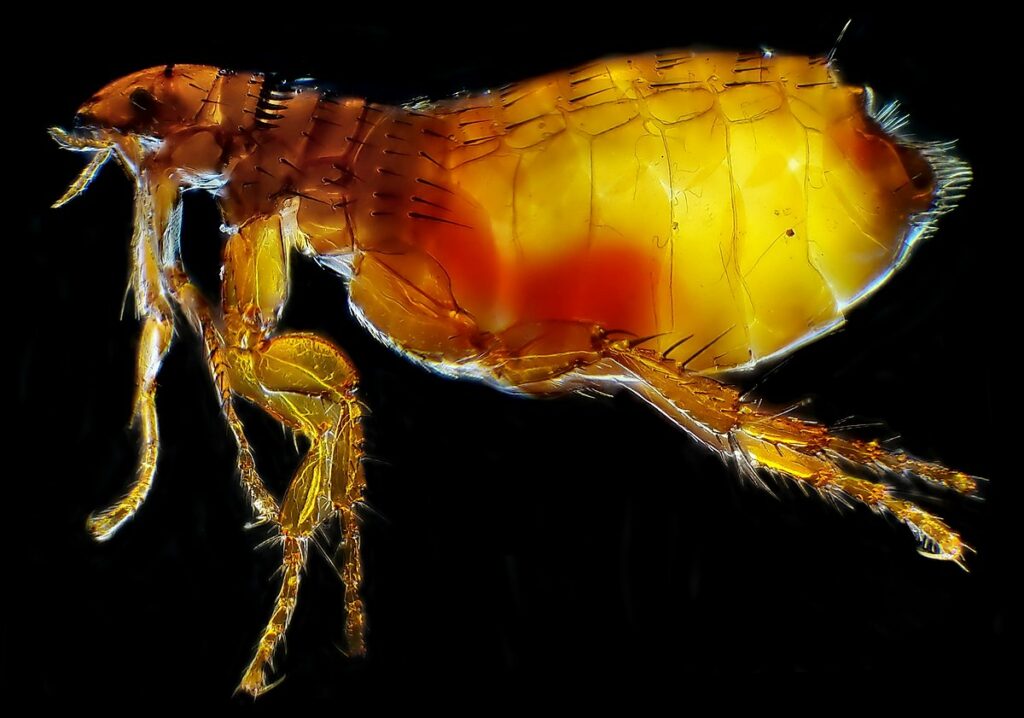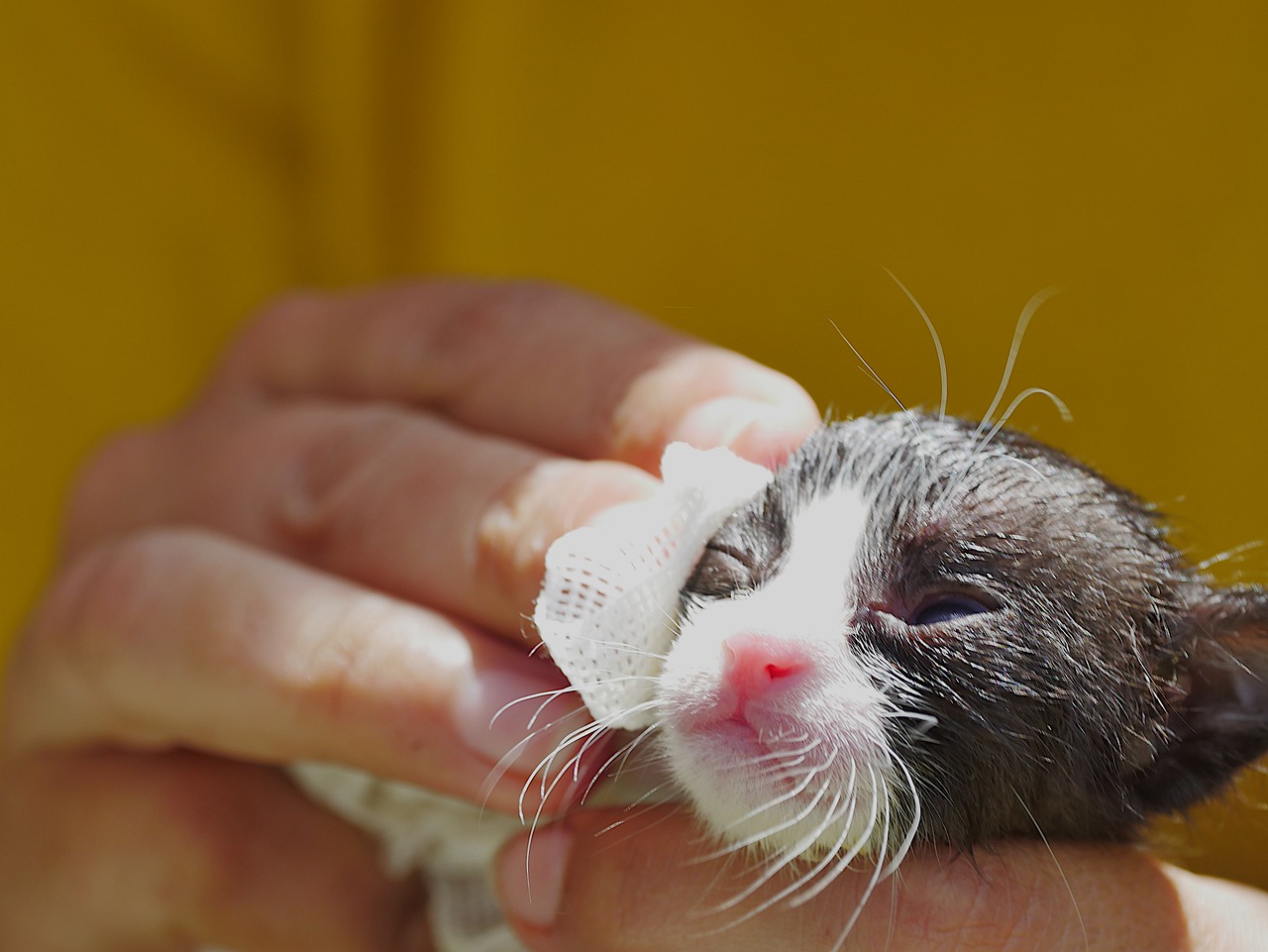Flea bites on cats are incredibly itchy and unpleasant for our feline friends. They can also lead to other health risks, such as allergies, skin irritations, and infections. You should do your best to treat flea bites on cats as soon as possible. This will not only help your pet, but it will also protect your home — fleas can thrive in your home and can pose a risk to you and your loved ones. Here are some ways to effectively treat flea bites on cats.
Before you can treat flea bites on cats you need to…
1. Confirm that your cat has fleas
First, you have to know that you are truly dealing with fleas and not something else. It’s important to know the pest you are dealing with because different pests require different pest control methods and treatments.
For example, do you know that cats and dogs can actually get infested with live flies and maggots? Flies can bite bellies, ears, and other body parts your pets can’t easily defend. Flies can also nest on wounds and let maggots thrive.
If you use flea and flea bite treatments on your cat even though what they have on them is completely different, the treatments become ineffective. You also unnecessarily put your cat at risk of the dangers associated with flea and flea bite treatments.
2. Know what flea bites look like
Flea bites are small and red bumps on your cat’s skin. They may be difficult to spot because of your cat’s fur. But they are easier to see if you navigate through your cat’s fur, especially on the usual spots where fleas thrive, like in the neck, lower back, hind legs, and the base of the tail.
You can confirm that they are indeed flea bites if you see fleas all over your cat as well. These are small and winged insects that suck the blood out of your cat to survive. Cats with fleas may suffer from a variety of conditions Aside from itchy flea bites, they may also get anemia, bacterial infections, flea allergy dermatitis, and tapeworms.
3. Look for other symptoms
Luckily, these conditions all have signs and symptoms you can look for in your cat. If you see at least one of these, your cat’s condition may already be beyond your amateur control. Consult a veterinarian immediately.
Signs and symptoms of flea bites on cats
There are different types of symptoms for flea bites:
1. Behavioral symptoms
- Irritability
- Lethargy
2. Digestive symptoms
- Diarrhea
- Flatulence
- Vomiting
3. Respiratory symptoms
- Coughing
- Discharge (in the eyes or nose)
- Rapid breathing
- Sneezing
- Wheezing
4. Skin symptoms
- Crusts or small bumps
- Itchiness (in the anus area in the case of tapeworms)
- Fur loss
- Presence of tapeworm eggs
- Redness in the skin

Consult a veterinarian to treat flea bites on cats
Flea bites and other medical conditions require professional medical help. In the case of flea bites, your veterinarian may prescribe medications more effective and powerful than those you can buy over-the-counter. These prescriptions may also be able to provide relief from the allergy and itchiness associated with flea saliva. They can prescribe antibiotics and corticosteroids with different methods of application. The medications can be applied topically, injected, or taken orally.
For anemia, bacterial infections, flea allergy dermatitis, and tapeworms, the veterinarian may conduct further physical examinations to diagnose the problem properly and come up with a proper solution.
Try over-the-counter medications
Even though it is better to consult a veterinarian, you can still somewhat treat flea bites on cats with DIY methods and non-prescription drugs. The biggest issues with flea bites are allergies and infection risks. The best approach is to ease the itchiness to prevent your cat from scratching and infecting the wounds.
You can bathe your cat with warm water and mild shampoo, but this is not advisable if the flea bites are already deep and ulcerated. Over-the-counter topical sprays, such as those with hydrocortisone, can also help ease itchiness.
Even if you plan to take your cat to the veterinarian, it’s still a good idea to try these things as the first line of defense.
Get rid of the fleas themselves
The best way to prevent flea bites is to not have fleas around you. Get rid of your cat’s fleas with the help of a veterinarian. They can recommend both prescription and non-prescription medications, such as flea sprays, flea powders, insecticidal collars, spot-on treatments, and tablets. They will take into account your cat’s current condition and medical history, so they can give the most appropriate treatment. This is especially helpful if your cat is known to be sensitive.
There are also a lot of home remedies for fleas, like apple cider vinegar, cedar chips and oil, and even lemon. These home remedies, however, work best only in mild and moderate cases. For severe cases, you may want to rely on more proven commercial products.

Watch out for flea treatment dangers
Over-the-counter medications and home remedies do work against fleas, but one fact still remains — you are still not a medical professional, and this can put your cat’s health at risk, even its life. Do you know that you shouldn’t use dog flea treatments on cats? This is because cats are very sensitive to common dog flea treatment ingredients. They can even die.
There are also other flea treatment dangers you should be concerned about, like contact dermatitis, digestive problems, paresthesia, and neurologic adverse events. You may think that you can avoid these by simply using the best products, but you couldn’t be more wrong. Even FDA-approved products can give you such problems.
This is why it’s still better to consult a veterinarian. The medical professional won’t just give you the appropriate medications. They can also help in case other dangers occur.
How to make your home flea free
You can treat flea bites on cats and get rid of the fleas themselves on your pets. But this doesn’t mean you and your pets are already completely safe from the bloodsucking parasites and their bites. Fleas can thrive in your home. They can be found in your cat’s belongings like their litterboxes or the areas where your cat frequently goes like your bed. This means you can get flea bites yourself.
You can prevent this from happening by cleaning your surroundings, especially your beds, carpets, rugs, and sofas. In the meantime, you can also prevent your cat from freely going around your property until they are finally free of fleas.

